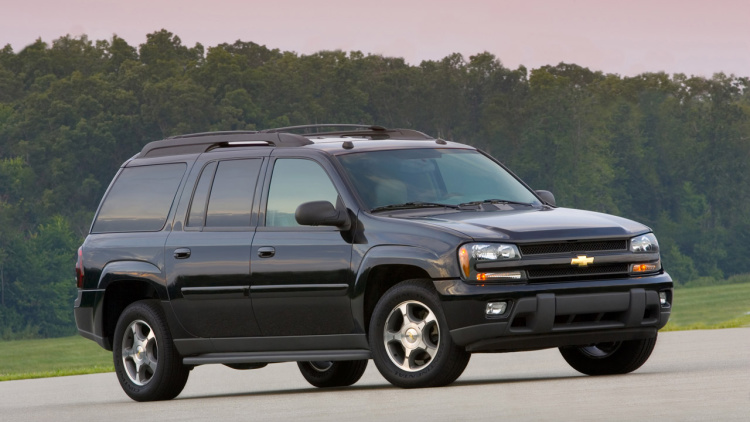The Latest Vehicles Recalled by GM Can Catch Fire Even When Not in Use
On August 8, 2014, GM was reported to have recalled 189,000 SUVs because of a defect in the vehicles’ power-window switches that can cause the SUVs to catch fire even when they are not in use. According to the National Highway Traffic Safety Administration (NHTSA), fluid, such as rain water, may enter the power-window switch module in one of these vehicles, causing corrosion and a short in the circuit board that can result in fire. This latest GM defect is reportedly so dangerous that GM has warned customers to park the vehicles outdoors rather than in garages until they can be repaired.
Though the recall was not issued until August 2014, NHTSA began investigating the problem in early 2012, after receiving complaints from consumers of fires erupting in the SUVs’ driver-side power-window switches. At least one complaint was filed as early as 2008 by a woman whose SUV burst into flames while the vehicle was turned off and parked in her driveway. According to reports, firefighters informed the woman that the fire had started in the driver’s door.
By August 2012, NHTSA and GM had reportedly received 242 complaints and reports of 28 fires, prompting an initial recall of 278,000 GM SUVs in cold-weather states. The remedy opted for by GM at the time of that recall was less costly than replacing the power-window switches. It also proved to be unsuccessful, as reports of fires continued even in vehicles that had received GM’s “fix.”
GM has promised to replace the defective switches in the SUVs subject to the 2014 recall, although replacement parts will not be available—at the earliest—until sometime in October. The affected vehicles include the Chevrolet Trailblazer, GMC Envoy, Buick Rainier, Isuzu Ascender, and Saab 97-X, primarily from model years 2006 and 2007.
Consumers need to be aware that if fires can start in these vehicles even when they are not in use, they can also start while the vehicles are being driven. This defect, like so many vehicle defects, has the potential to cause traffic accidents, serious injuries, and wrongful deaths.
Legal Liability for Injuries and Deaths Caused by Defective Cars, SUVs, and Other Motor Vehicles
Who may be held responsible for injuries and deaths caused by defects such as the one that has prompted this latest GM recall? Can the manufacturer still be found liable for injuries or deaths caused by a defect in a vehicle if the vehicle has been recalled?
Though the questions of liability, causation, and damages in such cases can be extremely complex, most states’ laws will hold the manufacturer and others in the chain of a defective vehicle’s distribution liable for injuries or deaths caused by the vehicle’s defect. This is so even when the vehicle has been recalled.
Product-liability Law
The manufacturer and others in the chain of an SUV or other motor vehicle’s distribution may be found liable for such injuries or deaths under the product-liability law of most states. Though the law of product liability may vary somewhat from state to state, most states have enacted some form of the Model Uniform Product Liability Act (MUPLA) and will hold certain defendants liable for injuries or deaths caused by defects in the vehicle’s design or manufacture or the failure to warn of certain dangers associated with the vehicle’s use. With most products, defendants that may be found liable include the product’s designer, manufacturer, assembler, distributor, retailer, and others in the chain of distribution. When a product-liability case involves injuries or deaths caused by a car or other motor vehicle, however, some states relieve the retailers of such vehicles from liability for injuries or deaths caused by defects of which the retailer was unaware.
Product liability actions provide an advantage to plaintiffs over negligence actions, as these actions can be brought as strict liability claims, which relieve the plaintiff of proving negligence on the part of any of the defendants or even knowledge of the defect that led to the injuries or deaths. The plaintiff need only establish that the defect existed, that it was a cause of the injuries or death, and that the injuries or death resulted in legally compensable damages.
In other words, the defendants in a product liability case may be found liable without regard to fault or knowledge. Thus, the recall of a defective motor vehicle or other product before an injury or death occurred will not relieve the defendants from liability for injuries or deaths caused by the vehicle defect.
Wrongful Death Law
When a defect in a car or other motor vehicle results in someone’s death, the laws of most states allow the survivors of the decedent to recover damages suffered by the survivors as a result of the death through the institution of a wrongful death suit. The survivors allowed to bring a wrongful-death suit generally include immediate family members, such as the decedent’s spouse and children.
Protect Yourself by Taking Recalls Seriously
Today’s writer, Jeff Killino, is the managing partner of The Killino Firm, P.C. and a respected litigation attorney with extensive experience with cases arising out of injuries or deaths caused by defective cars and other motor vehicles, and urges all consumers to take this and other recalls very seriously. Attorney Killino has achieved national recognition on major television networks, such as CNN, ABC FOX, and the Discovery Channel, for his dedication to holding vehicle manufacturers accountable for the injuries and deaths caused by their defective vehicles. His involvement in such cases includes a national product-liability action that resulted in the recall of 450,000 defective tires manufactured in China.
P.S: Sponsored Post
Image from Google
